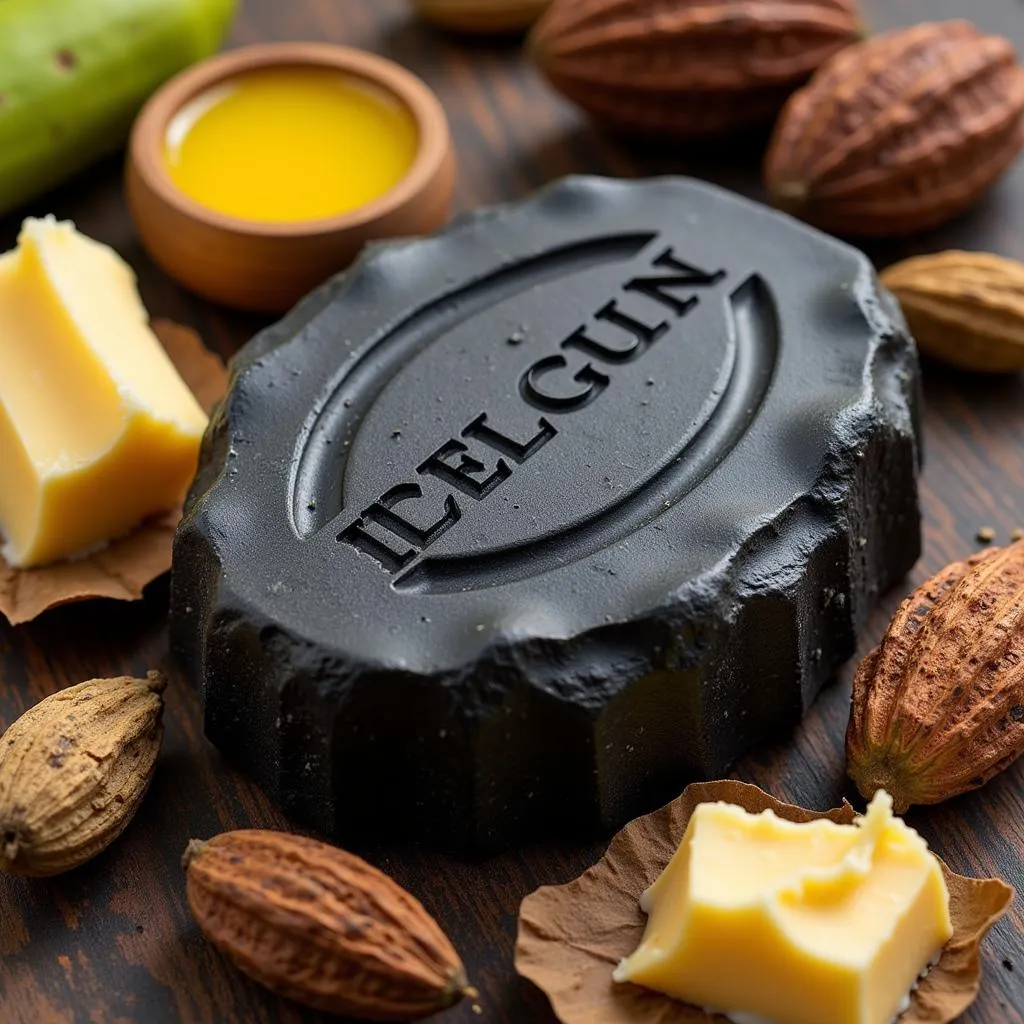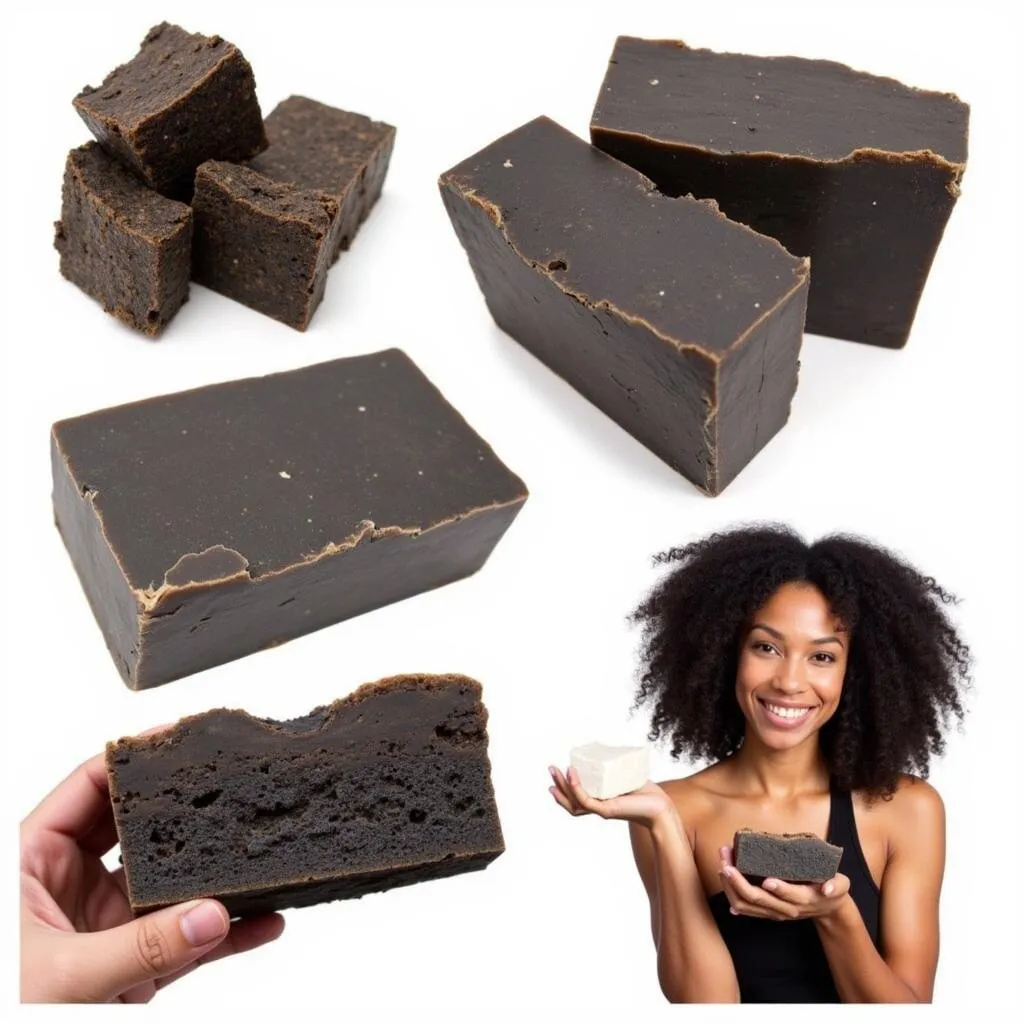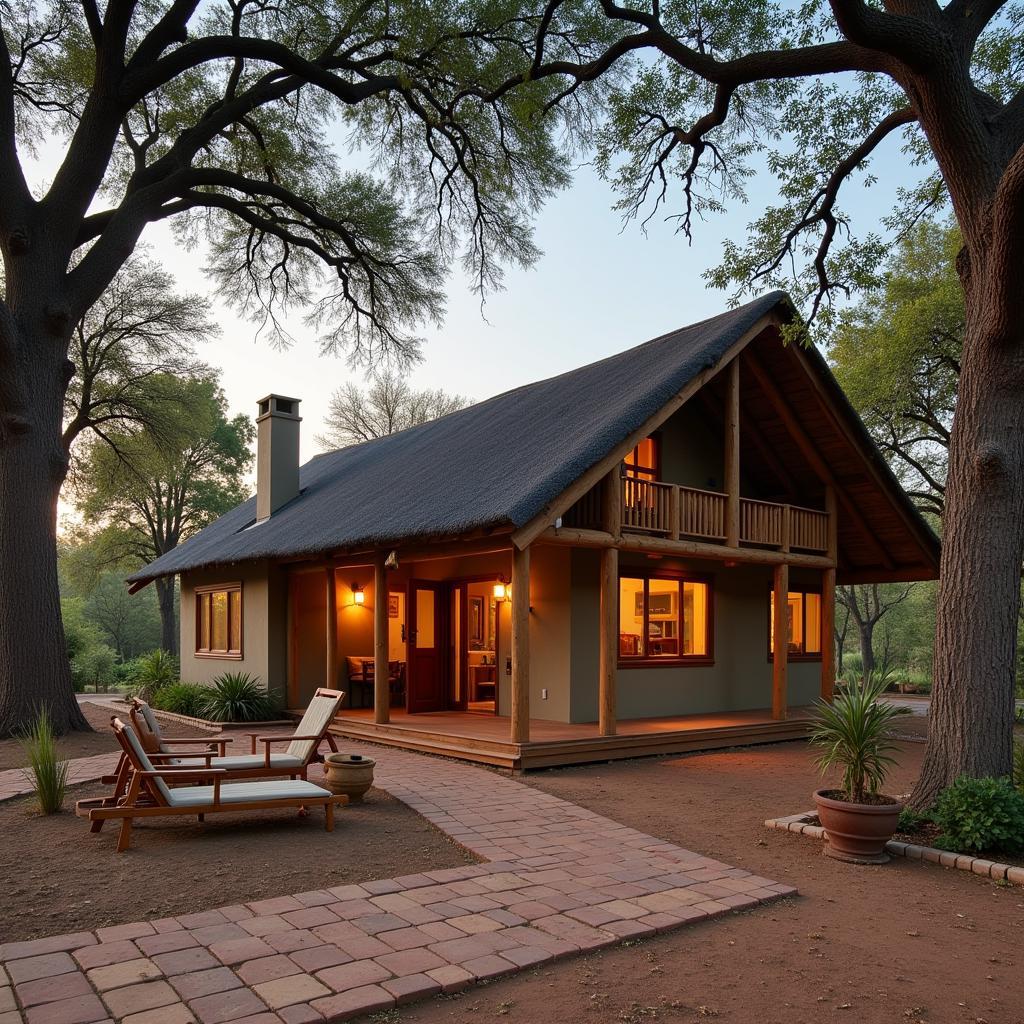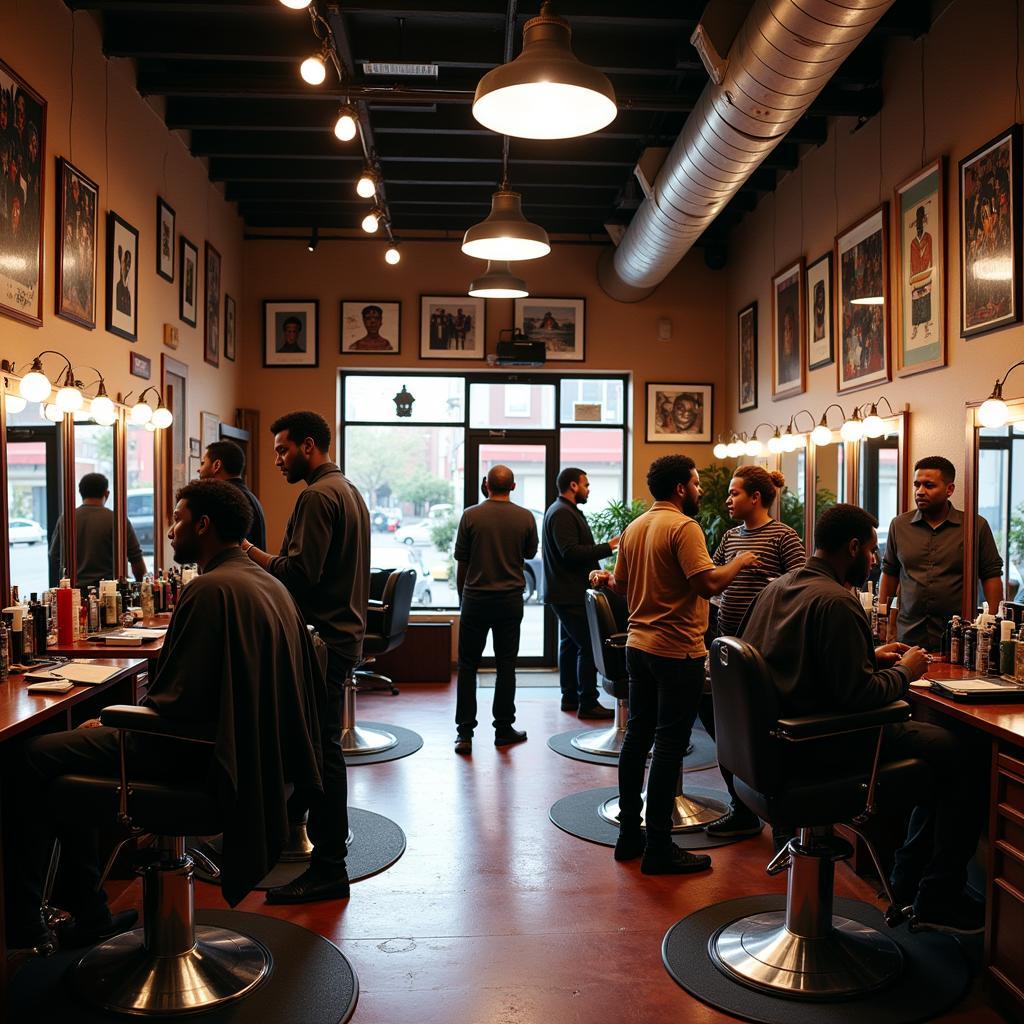African Black Soap: Burnt Skin But Effective? Unpacking the Truth
African black soap has taken the beauty world by storm, touted for its natural ingredients and ability to address various skin concerns. However, whispers of “burnt skin” often accompany its rise in popularity. Is this ancient beauty secret a miracle worker or a recipe for disaster? Let’s delve into the world of African black soap, separating fact from fiction and understanding why, despite occasional drawbacks, it remains a cherished skincare staple for many.
The Allure of African Black Soap: What Makes it Special?
African black soap is no ordinary cleanser. Unlike mass-produced soaps laden with chemicals, it boasts a rich history rooted in West Africa, handcrafted through generations using traditional methods. This heritage is evident in its simple yet potent ingredients:
- Plantain Skins: Rich in vitamins A and E, promoting healing and skin elasticity.
- Cocoa Pods: Abundant in antioxidants, combating free radicals and reducing inflammation.
- Shea Butter: Deeply moisturizing, soothing irritation, and promoting a healthy skin barrier.
- Palm Oil: Providing a gentle lather and contributing to the soap’s characteristic dark hue.
This unique blend works harmoniously to cleanse, exfoliate, and nourish the skin. But what about the burning sensation some experience?
African Black Soap and Burning Skin: Separating Myth from Reality
 African black soap ingredients
African black soap ingredients
The “burning” sensation often associated with African black soap isn’t actual burning. It’s a tingling or tightening feeling, a sign of the soap’s deep cleansing and exfoliating action. This effect arises from the soap’s high pH level, typically more alkaline than commercial soaps. While this alkalinity helps remove dirt and dead skin cells, it can disrupt the skin’s natural pH balance, leading to dryness, irritation, or that “burnt” feeling, especially for those with sensitive skin.
However, this doesn’t mean you should ditch this potent cleanser. Understanding its proper use is key:
- Start Slow: Introduce it gradually into your routine, using it once or twice a week initially.
- Listen to Your Skin: If you experience excessive dryness or irritation, reduce usage or discontinue.
- Hydrate Thoroughly: Always follow up with a moisturizer to replenish moisture lost during cleansing.
Debunking the Myths: Is African Black Soap Right for You?
Despite its long history and natural appeal, misconceptions surrounding African black soap abound. Let’s clarify some common myths:
Myth: African black soap is suitable for all skin types.
Fact: While generally safe, those with sensitive, dry, or eczema-prone skin should exercise caution. It’s always wise to do a patch test before incorporating it into your routine.
Myth: All African black soaps are created equal.
Fact: Beware of imitations! Authentic African black soap is usually rough-textured and varies in shape and color. Mass-produced versions may contain harsh chemicals or artificial fragrances, negating its benefits.
Myth: African black soap can magically fade scars and blemishes overnight.
Fact: While its exfoliating properties can help improve skin texture and appearance over time, it’s not a quick fix. Consistency is key, and individual results may vary.
Choosing the Right African Black Soap: A Guide to Authentic Products
 Authentic African black soap
Authentic African black soap
Navigating the world of African black soap can be daunting. To ensure you’re getting the real deal, keep these tips in mind:
-
Ingredients Matter: Look for soaps with minimal, natural ingredients. Avoid products with artificial colors, fragrances, or preservatives.
-
Texture Speaks Volumes: Authentic African black soap is typically uneven in shape and has a crumbly, almost paste-like texture.
-
Color Variations are Normal: Genuine black soap ranges in color from dark brown to black, depending on the ingredients and production process.
-
Trust Your Nose: Authentic black soap has a natural, earthy scent. Overly perfumed soaps may indicate artificial additives.
“When choosing African black soap, remember, it’s not about finding the ‘perfect’ bar but rather one that resonates with your skin’s unique needs,” advises Abena Agyeman, a Ghanaian skincare specialist.
Beyond Cleansing: Exploring the Versatility of African Black Soap
African black soap’s benefits extend beyond facial cleansing. Its versatility shines through in various applications:
- Body Wash: Its gentle exfoliating action can help with body acne, ingrown hairs, and keratosis pilaris.
- Shampoo: It can cleanse the scalp, combat dandruff, and promote healthy hair growth.
- Shaving Soap: Its creamy lather provides a smooth shave while minimizing razor burn and irritation.
- Hand Soap: Its antibacterial properties make it an excellent natural alternative for handwashing.
Embracing African Black Soap: A Journey of Discovery
African black soap, with its rich history and potent properties, offers a unique approach to skincare. While the “burnt skin” sensation might seem daunting, it’s often a temporary hurdle on the path to healthier, more radiant skin. Understanding its nature, using it responsibly, and sourcing authentic products are key to unlocking its full potential.
Are you ready to embark on this journey of discovery? Remember, when it comes to African black soap, patience, consistency, and a little bit of love go a long way.
FAQs: Addressing Your African Black Soap Queries
Q: How often should I use African black soap?
A: Start with once or twice a week, gradually increasing frequency as your skin tolerates.
Q: Can I use African black soap on my face if I have acne-prone skin?
A: Yes, its antibacterial and anti-inflammatory properties can be beneficial. However, start slowly and monitor your skin’s response.
Q: Where can I buy authentic African black soap?
A: Look for reputable online retailers specializing in natural skincare products or visit African grocery stores or markets.
Q: Can I use African black soap on my baby’s skin?
A: It’s best to consult with a pediatrician before using any new product on a baby’s delicate skin.
Q: Does African black soap lighten skin tone?
A: No, it doesn’t lighten skin tone. It primarily cleanses, exfoliates, and promotes even skin texture.
Need more guidance on navigating the world of African skincare? Contact us! Call: +255768904061, Email: kaka.mag@gmail.com or visit us at Mbarali DC Mawindi, Kangaga, Tanzania. Our team is available 24/7 to assist you. Discover more about the wonders of African Life through our other insightful articles.

